VIDEO: Heinrich Floor Speech In Support Of Iran Nuclear Deal
WASHINGTON, D.C. -Today, U.S. Senator Martin Heinrich (D-N.M.) delivered a speech on the Senate floor on the Joint Comprehensive Plan of Action (JCPOA), the long-term, comprehensive deal that will verifiably prevent Iran from acquiring a nuclear weapon. Senator Heinrich, a member of the Senate Armed Services Committee and the Senate Select Committee on Intelligence, expressed support for the deal following its announcement in July and also discussed its impacts on U.S. national security in a key committee hearing last week.
Below are Senator Heinrich's remarks as prepared for delivery:
In the first decade of this century when the policies of President George W. Bush entangled our nation firmly in the War in Iraq, Iran's nuclear program surged ahead rapidly and unchecked, adding thousands of centrifuges, building complex nuclear facilities, and stockpiling highly enriched uranium.
In evaluating the proposed Nuclear Accord with Iran, it is important to compare what we have achieved with our allies against this reality.
I firmly believe that as we work to ensure that Iran is never able to develop a nuclear weapon, facts, data, and details actually matter far more than rhetoric.
Perhaps, it is just the engineer in me, but when the accord became public I sat down and started looking for numbers. People in Washington, D.C. are amazingly adept at arguing that up is down and that right is left, but numbers are harder to bend to our rhetorical will.
So let's begin with this most critical data point: without a deal, Iran could acquire enough highly enriched material for a bomb in 2-3 months.
Upon implementation of this deal, all four pathways to a bomb are blocked.
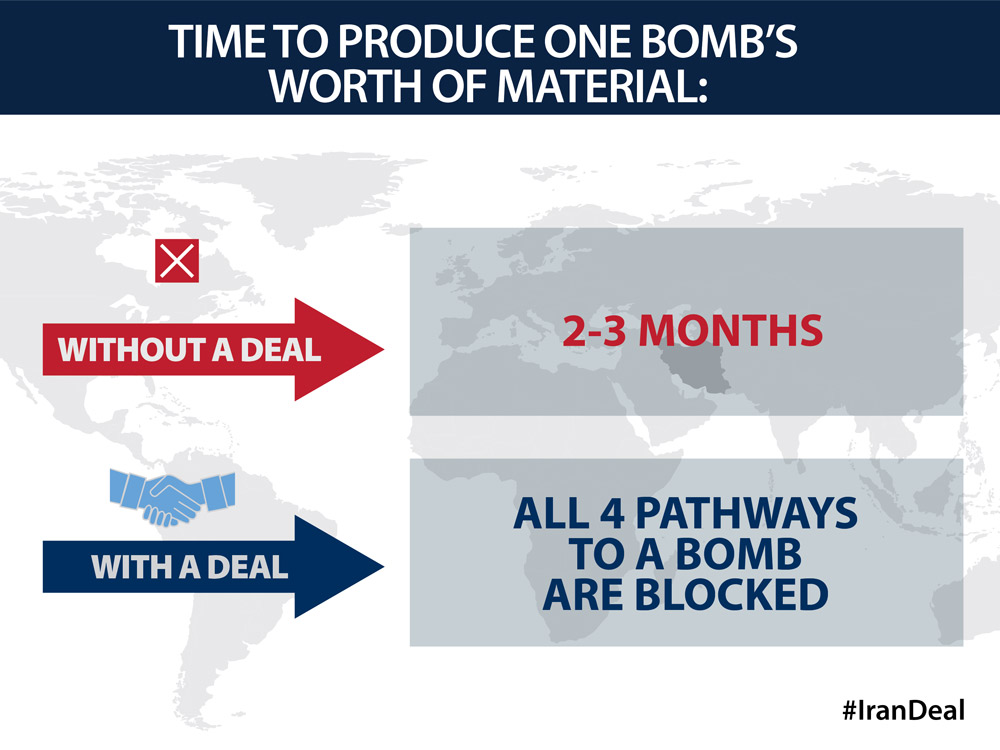
Another key data point: In the absence of real negotiations and before the most recent multilateral sanctions, Iran built a nuclear infrastructure that went from 164 centrifuges in 2003 to 19,000 centrifuges today.
With this deal, that number is rolled back by two-thirds, to 6,104 centrifuges.
And of those centrifuges, only 5,000 would be used to enrich uranium.
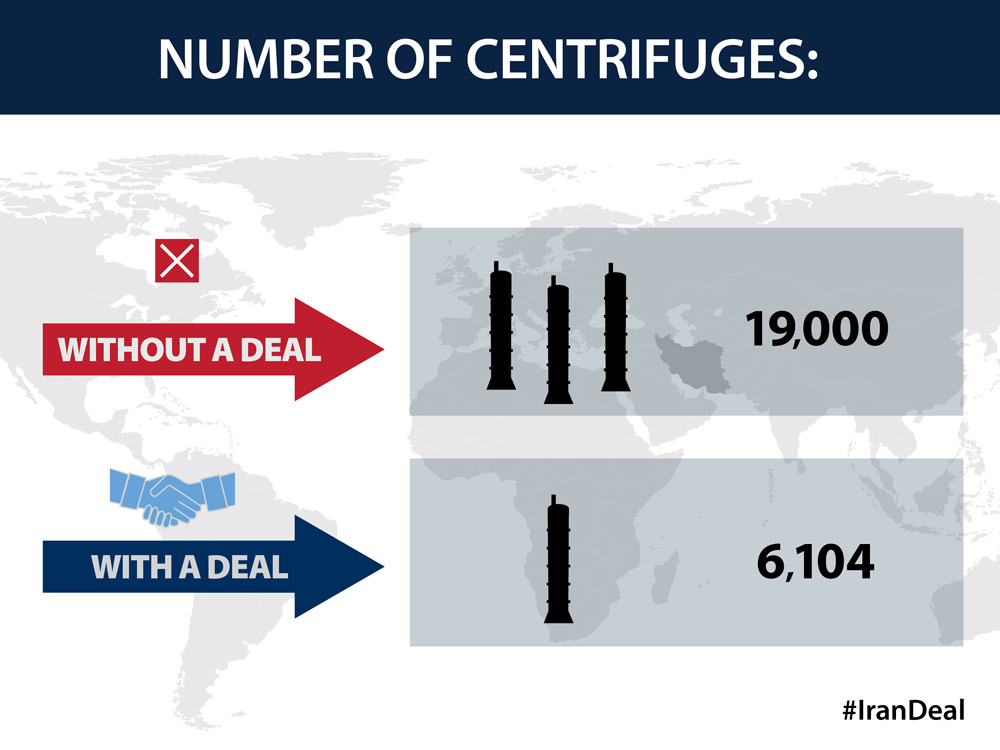
Without a deal, Iran's has 26,455 pounds of enriched uranium.
Under the accord, Iran must reduce its stockpile of enriched uranium by 98 percent--to 661 pounds.
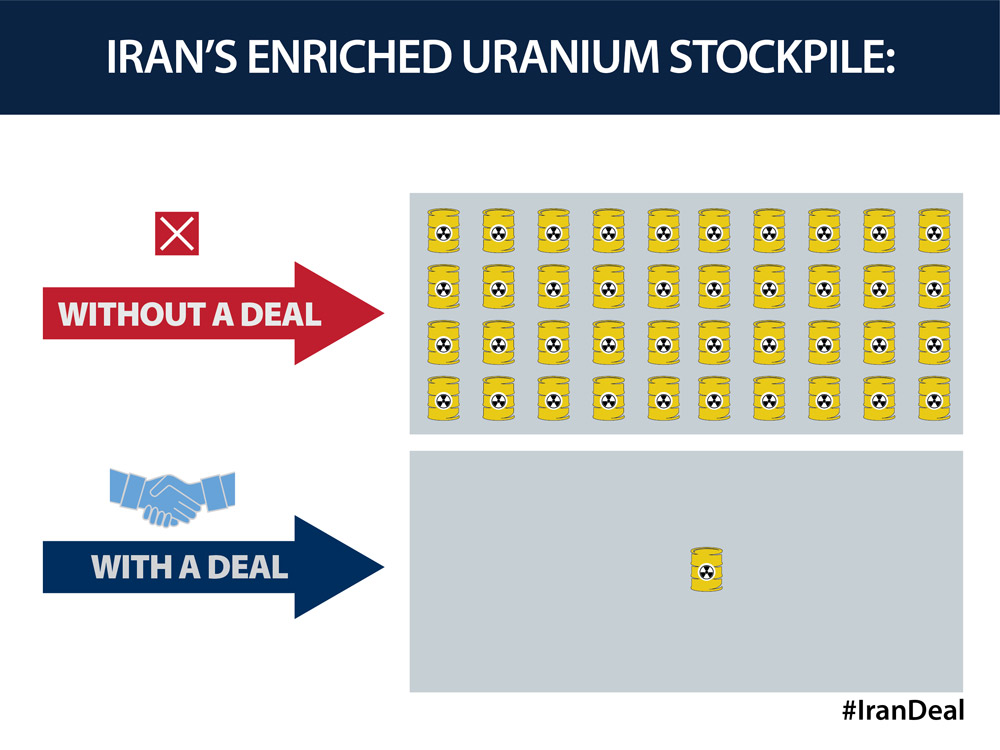
In addition, some of Iran's stockpile had been enriched to 20 percent, a dangerous level that can quickly be further concentrated to achieve weapons grade uranium.
Now, Iran will limit its uranium enrichment to less than 4 percent--a level of concentration appropriate for peaceful energy purposes.
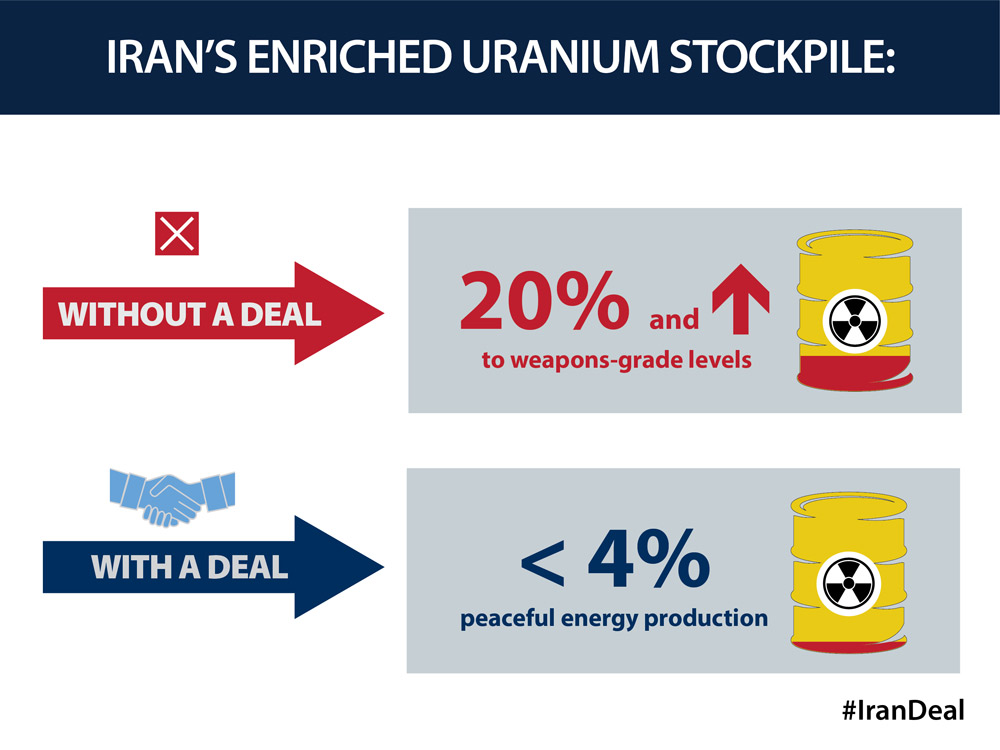
Without this accord, Iran's uranium stockpile is now large enough to yield
10 to 12 nuclear bombs.
With this deal, they won't have enough nuclear material to develop even one bomb.
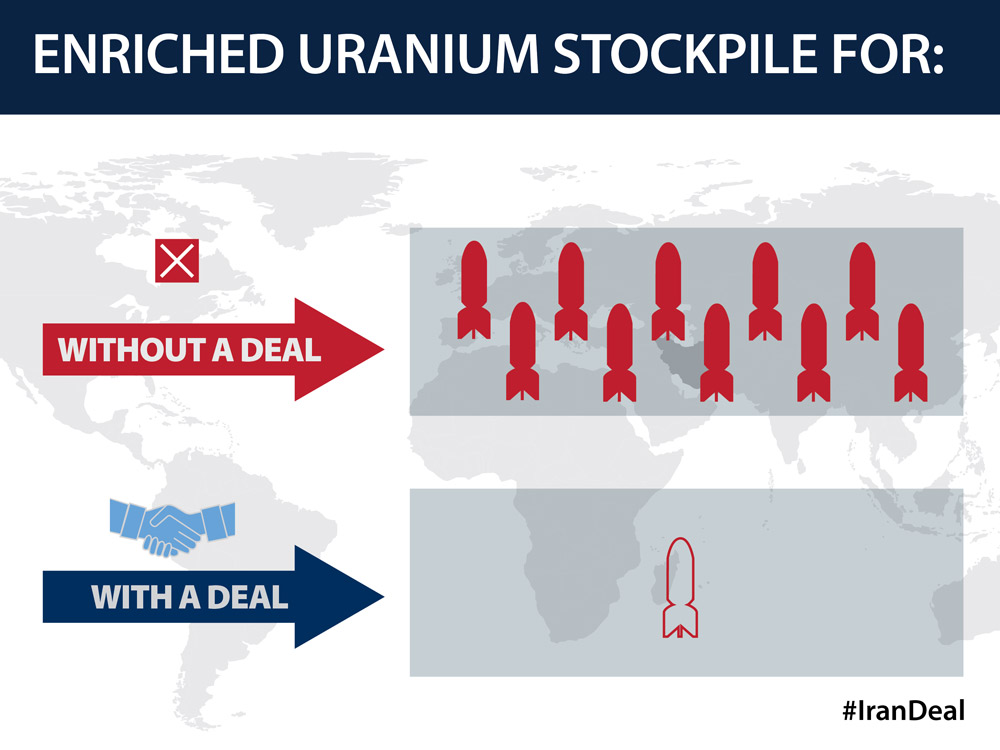
And under this deal, Iran must allow 24/7 inspections and continuous video monitoring of its nuclear infrastructure including Natanz, Fordo, the Arak reactor, and all of its uranium mining, milling, and processing facilities.
Furthermore, there is a mechanism in place that will allow inspections of any additional sites, should we suspect covert action is being taken to build a bomb anywhere else inside Iran.
Consequently, this accord breaks each and every pathway to a weaponized nuclear device, including any potential covert effort. We should welcome each of those developments as a major step toward regional and international security.
Now I've studied both the science and the politics of the nuclear-age world we live in from an early age. I grew up listening to my father, who served in the Navy in the 1950s, tell stories about what it was like to watch a nuclear blast firsthand and to see the formation of a mushroom cloud over Enewetak Atoll in the Marshall Islands.
While studying engineering at the University of Missouri, I worked at one of the largest research reactors in the United States. So I know what it's like to stare into the blue glow of a reactor pool.
More recently, I have seen firsthand, many of the world's centrifuges dedicated to the peaceful production of nuclear energy, which are housed in New Mexico.
Serving on the Senate Armed Services Committee, I help set policy on non-proliferation and our nuclear deterrent.
On the Senate Select Committee on Intelligence, I've received numerous briefings on Iran's nuclear program and capabilities.
So I am well acquainted with the steps necessary to successfully construct a nuclear weapon and to detect such activity.
It's because of this familiarity that I am confident in this accord.
The comprehensive, long-term deal achieved earlier this month includes all the necessary tools to break each potential Iranian pathway to a nuclear bomb.
Further, it incorporates enough lead-time, which we currently do not have, so that should Iran change its course, the United States and the world can react well before a device could be built; a scenario I hope never occurs, but one that--even with this accord--truly leaves all options on the table. Including the military option.
Some of my colleagues in the Senate object to this historical accomplishment, saying that we could have done better. However, none of them offer any realistic alternatives.
The only concrete alternative, should Congress reject this deal, has been to engage in a military strike against Iran.
While the military option will always remain on the table for the United States, even as we implement this accord, it should remain our absolute last resort.
As you can imagine, our military and intelligence leaders have looked at the potential repercussions should a direct military conflict with Iran occur.
That dangerous path would provoke retaliation, instability and would very likely lead to a nuclear-armed Iran in a matter of just a few years. Needless to say, this would be an irresponsible mistake.
As former brigadier general and deputy to the Israeli national security advisor
Shlomo Brom has said:
"This agreement represents the best chance to make sure Iran never obtains a weapon and the best chance for Congress to support American diplomacy--without taking any options off the table for this or future presidents."
For too long, our country has been engaged in overseas military conflicts that have cost our nation dearly in blood and treasure. We must always be ready at a moment's notice to defend our country, our allies, and our interests, but we must also look to avoid conflict whenever a diplomatic option is present and possible.
At this extraordinary moment, I am convinced that this accord is in the best interests of our nation and our allies.
I am still deeply distrustful of Iran's leadership.
But to make peace, you must negotiate with your enemies.
Obviously, any deal with Iran will not be without risk, but the risks--and consequences--of rejecting a deal are far more dire.
This deal sets the stage for a safer and more stable Middle East and a more secure United States of America.
We must seize this historic opportunity.